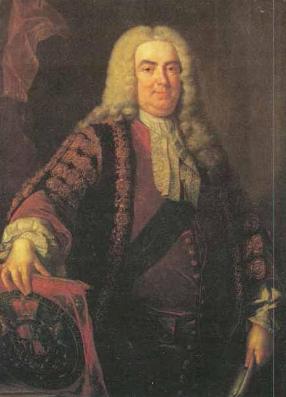[POJ]P3126 Prime Path[BFS]
Posted liisa
tags:
篇首语:本文由小常识网(cha138.com)小编为大家整理,主要介绍了[POJ]P3126 Prime Path[BFS]相关的知识,希望对你有一定的参考价值。
[POJ]P3126
Prime Path
| Time Limit: 1000MS | Memory Limit: 65536K | |
| Total Submissions: 35230 | Accepted: 18966 |
Description
 The ministers of the cabinet were quite upset by the message from the Chief of Security stating that they would all have to change the four-digit room numbers on their offices.
The ministers of the cabinet were quite upset by the message from the Chief of Security stating that they would all have to change the four-digit room numbers on their offices. — It is a matter of security to change such things every now and then, to keep the enemy in the dark.
— But look, I have chosen my number 1033 for good reasons. I am the Prime minister, you know!
— I know, so therefore your new number 8179 is also a prime. You will just have to paste four new digits over the four old ones on your office door.
— No, it’s not that simple. Suppose that I change the first digit to an 8, then the number will read 8033 which is not a prime!
— I see, being the prime minister you cannot stand having a non-prime number on your door even for a few seconds.
— Correct! So I must invent a scheme for going from 1033 to 8179 by a path of prime numbers where only one digit is changed from one prime to the next prime.
Now, the minister of finance, who had been eavesdropping, intervened.
— No unnecessary expenditure, please! I happen to know that the price of a digit is one pound.
— Hmm, in that case I need a computer program to minimize the cost. You don‘t know some very cheap software gurus, do you?
— In fact, I do. You see, there is this programming contest going on... Help the prime minister to find the cheapest prime path between any two given four-digit primes! The first digit must be nonzero, of course. Here is a solution in the case above.
1033The cost of this solution is 6 pounds. Note that the digit 1 which got pasted over in step 2 can not be reused in the last step – a new 1 must be purchased.
1733
3733
3739
3779
8779
8179
Input
One line with a positive number: the number of test cases (at most 100). Then for each test case, one line with two numbers separated by a blank. Both numbers are four-digit primes (without leading zeros).
Output
One line for each case, either with a number stating the minimal cost or containing the word Impossible.
Sample Input
3 1033 8179 1373 8017 1033 1033
Sample Output
6 7 0
Source
两年没写了,现在已经真的菜爆了。
本题大致意思,给你两个四位的素数,一个是起始状态,另一个是终止状态,要使起始状态变为终止状态每一步可进行的操作为,将这个四位数的某一位更换,但要求新的数也必须是一个素数,问最少步数。
大致思路也比较简单,就是先欧拉线性筛把所有素数先筛出来,再用在线处理的方式bfs。(然而我bfs写炸了好几次...)
代码:
#include<iostream> #include<cstdio> #include<algorithm> #include<cstring> using namespace std; const int Maxn = 10010 ; const int inf = 100000000 ; namespace iNx{ struct qq{ int num; int c; }; qq q[Maxn]; int primer[Maxn],pos[Maxn]; bool check[Maxn],exist[Maxn]; int cnt,best; void Euler(){ memset(check,1,sizeof check); int i,j; check[1]=false ; for(i=2;i<10000;i++){ if(check[i]) primer[++cnt]=i; for(j=1;j<=cnt&&(i*primer[j]<10000);j++){ check[i*primer[j]]=false ; if(i%primer[j]==0) break ; } } } int getn(int a,int i){ if(i==1) return a%10; if(i==2) return (a/10)%10; if(i==3) return (a/100)%10; return a/1000; } void bfs(int a,int b){ int head=1,tail=1; q[1].num=a; q[1].c=0; int i,j,h,k,m,t; while(tail>=head){ h=q[head].num; if(h==b){ printf("%d ",q[head].c); break ; } exist[h]=true ; for(i=1;i<=4;i++){ k=getn(h,i); for(j=1,m=1;j<i;j++) m*=10; for(j=0;j<=9;j++){ if(i==4&&j==0) continue ; if(j==k) continue ; t=h+j*m-k*m; if(check[t]&&(!exist[t])){ q[++tail].num=t; q[tail].c=q[head].c+1; } } } head++; } } int main(){ Euler(); int n,a,b,i; scanf("%d",&n); for(i=1;i<=n;i++){ scanf("%d%d",&a,&b); memset(exist,0,sizeof exist); bfs(a,b); } return 0; } } int main(){ iNx::main(); return 0; }
现在要开始天天练习了,蒟蒻我太难了。
以上是关于[POJ]P3126 Prime Path[BFS]的主要内容,如果未能解决你的问题,请参考以下文章